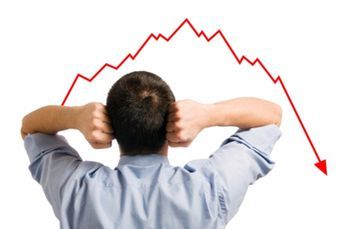Green funds were in the red in 2023

Sustainable investing saw headwinds last year as investors pulled out of funds, but performance recovered from a rough 2022
Last year was a difficult one for sustainable funds in the U.S.
It was the first time in a decade that money flowed out of mutual funds and ETFs with sustainability mandates. Many of the products also slightly lagged the returns of comparable funds without ESG considerations. And as numerous Republican politicians have sought to clamp down on the use of environmental, social and governance factors in investing, some of the largest asset managers have backed off support from shareholder resolutions that in the past they may have supported.
But, like most things in life, there is nuance.
In 2023, sustainable funds as a broad category had minor underperformance relative to conventional funds, or those that don’t take ESG into account, data from Morningstar show. But sustainable funds also saw a big turnaround from their performance problems in 2022 that stemmed from a lack of energy-sector holdings – the absence of energy securities actually helped returns in 2023, as did an overweighting in tech companies. And sustainable funds did not underperform across all asset classes.
While 53 percent of U.S. sustainable funds in 2023 ranked in the bottom half of performance compared with all other funds, results were worse for sustainable equity funds, with 57 percent in the bottom half, but better for sustainable fixed-income funds, with 51 percent in the top half, the recent data from Morningstar show.
Equity funds, particularly those with a focus on clean energy, were hit hardest last year, said Alyssa Stankiewicz, associate director of sustainability research at Morningstar Manager Research. However, sustainable funds in the company’s large-blend category slightly outperformed peers, at a median annual return of 24.4 percent versus 23.9 percent, respectively, she noted.
“Some of the headwinds have to do with high interest rates making it harder to build out new clean energy facilities and plants. That [trend] doesn’t seem to be going anywhere,” she said.
Another thing to consider is that sustainable funds tend to invest for the long haul. It’s worth noting, for example, that projections show global renewable energy tripling in capacity by 2030 amid governmental incentives for solar, wind and other projects, she said. And while past returns certainly don’t guarantee future ones, it can be helpful to look at performance over time.
“The performance thesis behind a lot of sustainable funds are long-term trends,” Stankiewicz said. “Over the five-year [time frame], trailing, these sustainable funds are outperforming their conventional peers.”
Just like with any type of investing, sustainable funds have periods of outperformance and underperformance, she noted.
“They’re not immune to macroeconomic factors,” she said.
NET REDEMPTIONS
While sustainable fund sales ramped up sharply between 2018 and 2021 – reaching a high of about $70 billion – inflows cooled in 2022. Last year, they saw their first net negative year, with investors pulling their money from both active and passive strategies to the tune of $13 billion, according to Morningstar. Sustainable equity funds were the ones in outflows, while sustainable bond funds were slightly positive in overall sales.
Vanguard brought in more new money than anyone, at $1.3 billion in net sales.
“Vanguard rose to the top this year,” Stankiewicz said. “Vanguard is interesting because they only have seven funds in the U.S. sustainable funds landscape – but they charge low fees and have been very successful in collecting flows.”
The redemptions last year were highlighted by one ETF – the iShares ESG Aware MSCI USA ETF, which bled $9.3 billion, the Morningstar data show. That dragged BlackRock’s net outflows in sustainable funds down to $8.7 billion, making it the provider that lost the most in the category. Even so, three of the four top sellers last year were iShares ETFs, with the Climate Conscious & Transition MSCI USA ETF bringing in nearly $1.6 billion. And with a total of $59.2 billion in sustainable fund assets, BlackRock remains the biggest, ahead of Parnassus’ $39.3 billion.
While the wider universe of U.S. mutual funds and ETFs brought in $79 billion last year, that group bled $370 billion in 2022.
However, the pictures for 2023 and past years are incomplete, as it is somewhat common for large asset owners to switch from mutual funds to otherwise identical collective investment trust versions of products that asset managers offer. CIT assets do not have to be reported, but asset managers often share figures with Morningstar and other data providers.
THE TRUE BELIEVERS
Institutional investors have been less aggressive about pulling assets from sustainable funds than retail investors, suggesting that institutions view some of the recent performance lags as temporary.
“I have a hard time thinking that the withdrawals we’re seeing are coming from high-conviction investors,” Stankiewicz said.
Data provided by Morningstar Direct show that institutional investors added $284 million to sustainable funds and ETFs last year, while retail investors pulled about $13 billion. By comparison, institutions had added $21 billion in 2021, and retail investors bought $49.7 billion in fund shares at the time.
Of course, funds are one way of investing sustainably. Increasingly, advisors have used direct indexing, which lets clients fine-tune their exposures to companies or industries.
“Not relying so much on funds and what other fund managers have deemed as sustainable or ESG, we’re customizing that a little bit more so the client can express it in their preferences,” said Kevin Cheeks, founder of ImpactFi, which specializes in sustainable and impact investing.
Using direct indexing to minimize tracking error to the benchmark, the S&P 500, his firm avoided the slight performance issues that sustainable funds and ETFs as category saw last year, he said.
Cheeks is also adding a service to provide customized proxy voting for clients who are invested through direct indexing, through the iconik proxy voting platform.
“People are pretty excited about it,” he said.
Sustainable investing has gotten a lot of negative attention, as numerous pieces of legislation have flooded state governments and Congress. Since 2021, Republicans in 38 states introduced 318 bills that targeted ESG or sustainable investing, according to figures from consulting firm Pleiades Strategy.
“After three years of coordinated effort, 37 bills in 17 states are now law, most watered down from their original scope due to strong opposition from business, labor, financial officers, and environmental advocates,” that group wrote in a recent report.
While politicians have been outspoken in their opposition to ESG in investing – and increasingly, diversity, equity, and inclusion – clients who favor sustainable strategies have remained committed, Cheeks said.
“I always remind myself how lucky I am to have such great clients,” he said.
High-yielding, ESG-friendly water stocks offer more than just liquidity
Learn more about reprints and licensing for this article.








